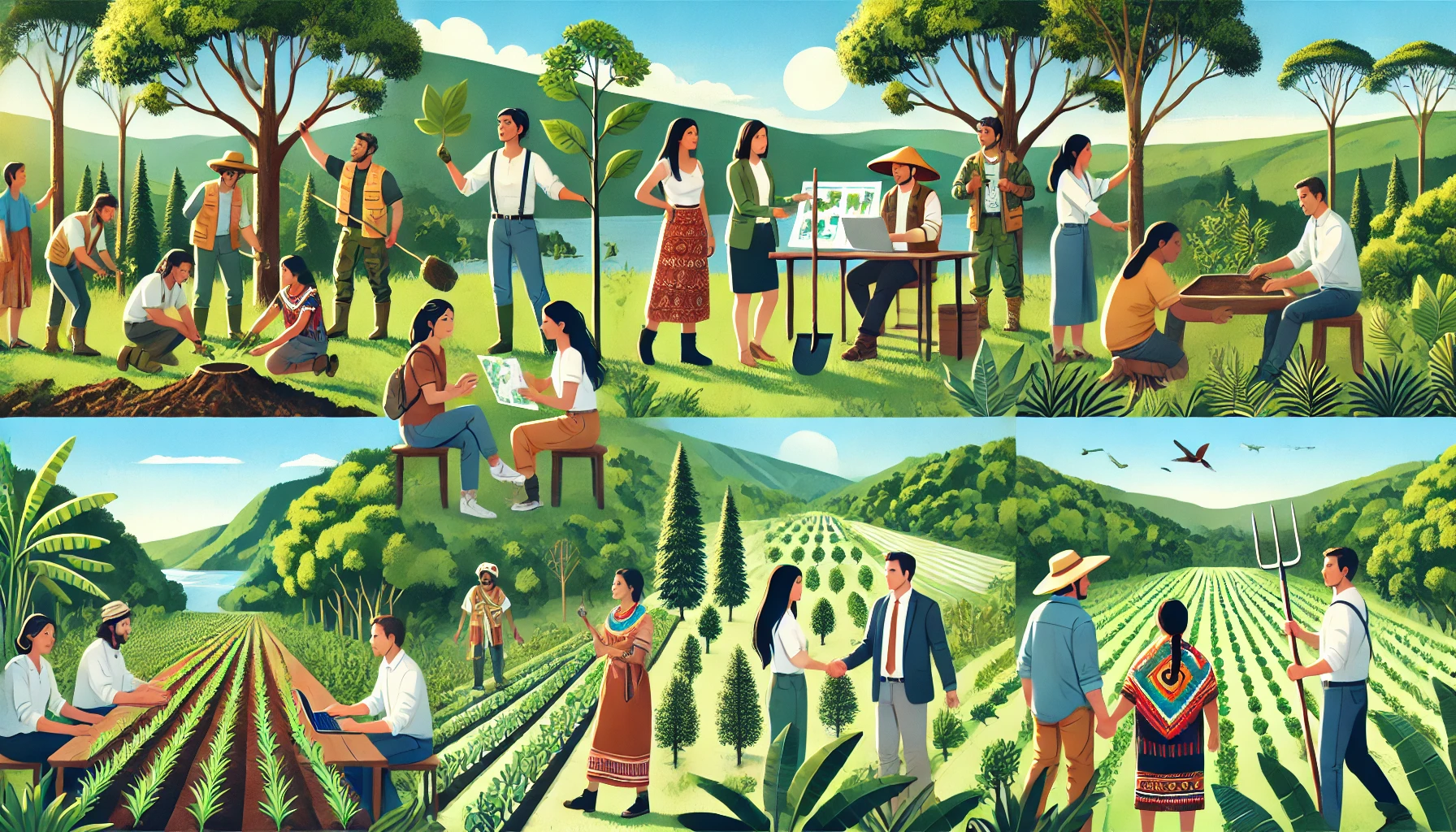World Bank Unveils 7th CEMAC Economic Barometer; Call for Diversification, Sustainable Forestry, and Economic Resilience
New Report Highlights Modest Growth, Persistent Poverty, and Untapped Forestry Potential in Central Africa.

The World Bank has released the 7th edition of the CEMAC Economic Barometer, a semi-annual report that examines the economic situation across the six-member countries of the Economic and Monetary Community of Central Africa (CEMAC): Cameroon, Central African Republic, Chad, Equatorial Guinea, Gabon, and the Republic of Congo. The December 2024 edition shines a spotlight on fiscal reforms needed to address challenges in the region’s underperforming forestry sector and calls for increased investment in resilient and inclusive economies.
CEMAC’s economic growth is projected to rise to 3.4% in 2024, compared to 1.8% in 2023. However, this modest improvement masks significant disparities across the region. The Central African Republic continues to face economic stagnation due to persistent fuel shortages and power outages, with growth expected at only 0.7%. Conversely, Equatorial Guinea anticipates 4.7% growth, driven by a recovery in its oil sector.
Despite moderate growth and falling inflation, poverty remains alarmingly high across the region. Approximately 33% of CEMAC’s 61 million people live in extreme poverty—on less than $2.15 per day (2017 PPP)—up from 30.6% two years ago.
The heavy reliance on extractive industries, which account for 75% of all exports, exposes the region to volatile commodity prices and limits job creation. With oil reserves depleting, the World Bank emphasizes the urgency of reinvesting extractive revenues into education, infrastructure, and sustainable industries to build resilient economies.
Forestry Sector: An Untapped Economic Asset
The CEMAC region, along with the Democratic Republic of Congo (DRC), hosts the Congo Basin, the world’s second-largest rainforest. While the forestry sector has immense economic potential, its contribution to GDP and government revenue remains minimal due to illegal logging, poor value addition, and revenue losses from tax exemptions.
Cameroon and Gabon dominate wood exports in the region. Gabon’s policies, including a log export ban paired with incentives for local wood processing, have boosted the export of processed wood products. However, across the region, nearly half of wood exports remain unprocessed industrial logs, which generate fewer jobs and lower revenues.
Forestry revenue in CEMAC countries accounted for just 0.2% of GDP in 2022. Governance challenges, including weak enforcement of forestry laws and corruption, exacerbate revenue losses. Illegal logging and a large informal sector undermine sustainable management and conservation efforts.
Balancing Economic Growth and Forest Conservation
The Congo Basin forest serves as a critical global carbon sink and biodiversity hotspot, making its conservation a priority for climate resilience. However, deforestation pressures persist due to unsustainable logging and agricultural practices, particularly in Cameroon, the Central African Republic, Equatorial Guinea, and the DRC.
The report highlights the need for fiscal reforms to incentivize sustainable forestry practices. Measures include:
- Adjusting tax rates to reflect the environmental impact of wood industry activities.
- Subsidizing sustainable practices in agriculture and forestry.
- Providing tax rebates for forestry certification and agroforestry initiatives.
The World Bank also calls for increased climate finance to support conservation and sustainable forest management, noting that the Congo Basin receives less international funding compared to other forested regions like the Amazon and Southeast Asia.
Regional Cooperation for Sustainable Forestry
Addressing cross-border challenges in forestry management will require stronger regional cooperation. Harmonizing forestry regulations, improving law enforcement, and aligning policies across CEMAC countries can enhance institutional capacities and attract international investment.
A robust governance framework is essential for implementing fiscal reforms and fostering transparency and collaboration. Strengthened governance will help reduce illegal logging, increase forestry revenues, and ensure the sustainable use of forest resources.
Looking Ahead
The CEMAC Economic Barometer underscores the urgent need for diversification in Central Africa’s economies. Moving beyond oil dependence, leveraging forestry potential, and investing in human capital are critical steps toward achieving sustainable development and reducing poverty in the region.
As the world focuses on climate action, the CEMAC countries have an opportunity to position the Congo Basin as a cornerstone of global sustainability efforts while fostering economic growth and improving the livelihoods of millions.
- READ MORE ON:
- CEMAC Economic Barometer
- World Bank










